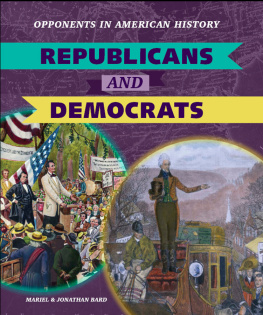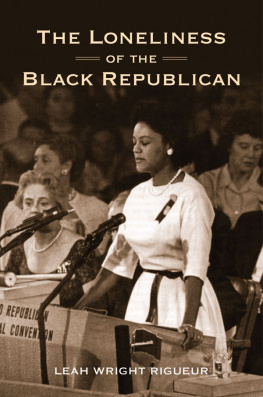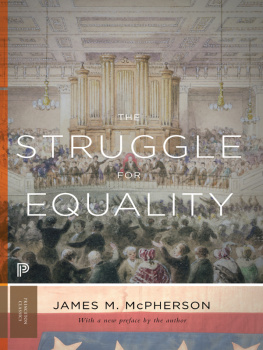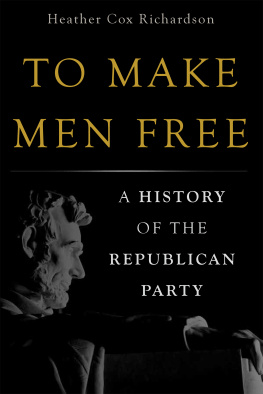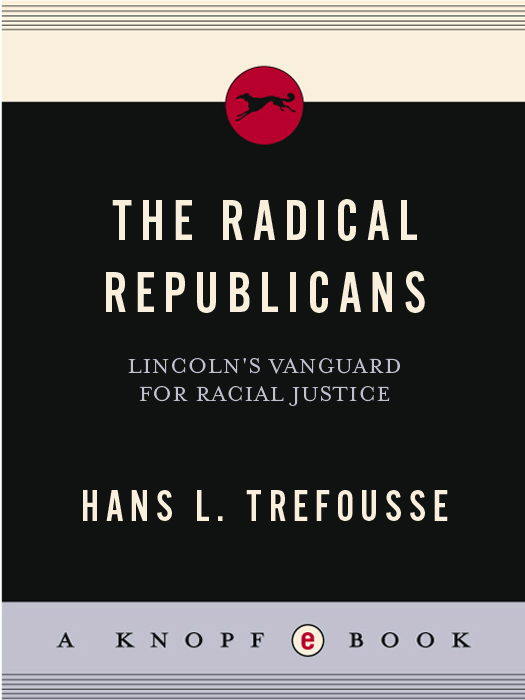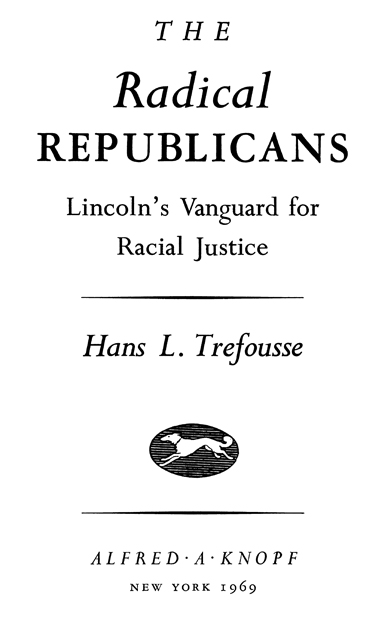Hans L. Trefousse - The Radical Republicans
Here you can read online Hans L. Trefousse - The Radical Republicans full text of the book (entire story) in english for free. Download pdf and epub, get meaning, cover and reviews about this ebook. year: 2014, publisher: Knopf Doubleday Publishing Group, genre: Politics. Description of the work, (preface) as well as reviews are available. Best literature library LitArk.com created for fans of good reading and offers a wide selection of genres:
Romance novel
Science fiction
Adventure
Detective
Science
History
Home and family
Prose
Art
Politics
Computer
Non-fiction
Religion
Business
Children
Humor
Choose a favorite category and find really read worthwhile books. Enjoy immersion in the world of imagination, feel the emotions of the characters or learn something new for yourself, make an fascinating discovery.

- Book:The Radical Republicans
- Author:
- Publisher:Knopf Doubleday Publishing Group
- Genre:
- Year:2014
- Rating:5 / 5
- Favourites:Add to favourites
- Your mark:
The Radical Republicans: summary, description and annotation
We offer to read an annotation, description, summary or preface (depends on what the author of the book "The Radical Republicans" wrote himself). If you haven't found the necessary information about the book — write in the comments, we will try to find it.
This is the story as well of the tangled relationship of the Radical Republicans with Abraham Lincolna relationship of both quarrels and mutual support. The author stresses the similarity between Lincolns ultimate aims and those of the Radical Republicans, demonstrating that without Lincolns support Sumner and his colleagues could never have accomplished their endsand that without their help Lincoln might not have succeeded in crushing the rebellion and putting an end to the slavery. And he argues that by 1865 Lincolns Reconstruction policies were nearing those of the Radicals and that, had he lived, they would not have broken with him as they did with his successor.
Lincolns assassination left the Radicals with no means to translate their demands into effective action. Their efforts to remake the South in such a way as to secure justice for the Negro brought them into conflict with President Johnson, in whose impeachment they played a leading role. Although they succeeded in initiating congressional Reconstruction and adding the fourteenth and fifteenth amendments to the Constitution, the Radicals lost power after the failure of the Johnson impeachment. Mr. Trefousse shows how, despite their declining influence throughout the 1870s, their accomplishments helped make possiblea century laterthe resumption of the struggle for civil rights.
Hans L. Trefousse: author's other books
Who wrote The Radical Republicans? Find out the surname, the name of the author of the book and a list of all author's works by series.

